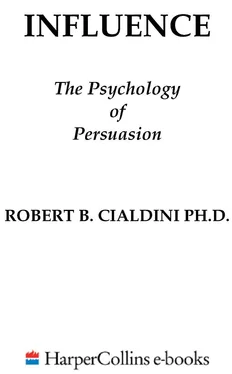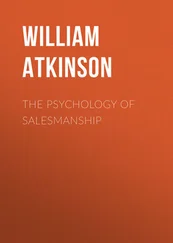It is the future orientation inherent in a sense of obligation that is critical to its ability to produce social advances of the sort described by Tiger and Fox. A widely shared and strongly held feeling of future obligation made an enormous difference in human social evolution, because it meant that one person could give something (for example, food, energy, care) to another with confidence that it was not being lost. For the first time in evolutionary history, one individual could give away any of a variety of resources without actually giving them away. The result was the lowering of the natural inhibitions against transactions that must be begun by one person's providing personal resources to another. Sophisticated and coordinated systems of aid, gift giving, defense, and trade became possible, bringing immense benefit to the societies that possessed them. With such clearly adaptive consequences for the culture, it is not surprising that the rule for reciprocation is so deeply implanted in us by the process of socialization we all undergo.
I know of no better illustration of how reciprocal obligations can reach long and powerfully into the future than the perplexing story of five thousand dollars of relief aid that was sent in 1985 between Mexico and the impoverished people of Ethiopia. In 1985 Ethiopia could justly lay claim to the greatest suffering and privation in the world. Its economy was in ruin. Its food supply had been ravaged by years of drought and internal war. Its inhabitants were dying by the thousands from disease and starvation. Under these circumstances, I would not have been surprised to learn of a five-thousand-dollar relief donation from Mexico to that wrenchingly needy country. I remember my chin hitting my chest, though, when a brief newspaper item I was reading insisted that the aid had gone in the opposite direction. Native officials of the Ethiopian Red Cross had decided to send the money to help the victims of that year's earthquakes in Mexico City.
It is both a personal bane and a professional blessing that whenever I am confused by some aspect of human behavior, I feel driven to investigate further. In this instance, I was able to track down a fuller account of the story. Fortunately a journalist who had been as bewildered as I was by the Ethiopians' action had asked for an explanation. The answer he received offers eloquent validation of the reciprocity rule: Despite the enormous needs prevailing in Ethiopia, the money was being sent because Mexico had sent aid to Ethiopia in 1935, when it was invaded by Italy. So informed, I remained awed, but I was no longer puzzled. The need to reciprocate had transcended great cultural differences, long distances, acute famine, and immediate self-interest. Quite simply, a half century later, against all countervailing forces, obligation triumphed.
Make no mistake, human societies derive a truly significant competitive advantage from the reciprocity rule, and consequently they make sure their members are trained to comply with and believe in it. Each of us has been taught to live up to the rule, and each of us knows about the social sanctions and derision applied to anyone who violates it. The labels we assign to such a person are loaded with negativity—moocher, ingrate, welsher. Because there is general distaste for those who take and make no effort to give in return, we will often go to great lengths to avoid being considered one of their number. It is to those lengths that we will often be taken and, in the process, be "taken" by individuals who stand to gain from our indebtedness.
To understand how the rule for reciprocation can be exploited by one who recognizes it as the source of influence it certainly is, we might closely examine an experiment performed by Professor Dennis Regan of Cornell University. A subject who participated in the study found himself rating, along with another subject, the quality of some paintings as part of an experiment on "art appreciation." The other rater—we can call him Joe—was only posing as a fellow subject and was actually Dr. Regan's assistant. For our purposes, the experiment took place under two different conditions. In some cases, Joe did a small, unsolicited favor for the true subject. During a short rest period, he left the room for a couple of minutes and returned with two bottles of Coca-Cola, one for the subject and one for himself, saying, "I asked him [the experimenter] if I could get myself a Coke, and he said it was okay, so I bought one for you, too." In other cases, Joe did not provide the subject with a favor; he simply returned from the two-minute break empty-handed. In all other respects, however, Joe behaved identically.
Later on, after the paintings had all been rated and the experimenter had momentarily left the room, Joe asked the subject to do him a favor. He indicated that he was selling raffle tickets for a new car and that if he sold the most tickets, he would win a fifty-dollar prize. Joe's request was for the subject to buy some raffle tickets at twenty-five cents apiece: "Any would help, the more the better." The major finding of the study concerns the number of tickets subjects purchased from Joe under the two conditions. Without question, Joe was more successful in selling his raffle tickets to the subjects who had received his earlier favor. Apparently feeling that they owed him something, these subjects bought twice as many tickets as the subjects who had not been given the prior favor. Although the Regan study represents a fairly simple demonstration of the workings of the rule for reciprocation, it illustrates several important characteristics of the rule that, upon further consideration, help us to understand how it may be profitably used.
The Rule Is Overpowering
One of the reasons reciprocation can be used so effectively as a device for gaining another's compliance is its power. The rule possesses awesome strength, often producing a "yes" response to a request that, except for an existing feeling of indebtedness, would have surely been refused. Some evidence of how the rule's force can overpower the influence of other factors that normally determine whether a request will be complied with can be seen in a second result of the Regan study. Besides his interest in the impact of the reciprocity rule on compliance, Regan was also interested in how liking for a person affects the tendency to comply with that person's request. To measure how liking toward Joe affected the subjects' decisions to buy his raffle tickets, Regan had them fill out several rating scales indicating how much they liked Joe. He then compared their liking responses with the number of tickets they had purchased from Joe. There was a significant tendency for subjects to buy more raffle tickets from Joe the more they liked him. But this alone is hardly a startling finding. Most of us would have guessed that people are more willing to do a favor for someone they like.
The interesting thing about the Regan experiment, however, is that the relationship between liking and compliance was completely wiped out in the condition under which subjects had been given a Coke by Joe. For those who owed him a favor, it made no difference whether they liked him or not; they felt a sense of obligation to repay him, and they did. The subjects in that condition who indicated that they disliked Joe bought just as many of his tickets as did those who indicated that they liked him. The rule for reciprocity was so strong that it simply overwhelmed the influence of a factor—liking for the requester—that normally affects the decision to comply.
Think of the implications. People we might ordinarily dislike—unsavory or unwelcome sales operators, disagreeable acquaintances, representatives of strange or unpopular organizations—can greatly increase the chance that we will do what they wish merely by providing us with a small favor prior to their requests. Let's take an example that by now many of us have encountered. The Hare Krishna Society is an Eastern religious sect with centuries-old roots traceable to the Indian city of Calcutta. But its spectacular modern-day story occurred in the 1970s, when it experienced a remarkable growth not only in followers but also in wealth and property. The economic growth was funded through a variety of activities, the principal and still most visible of which is the request for donations by Society members from passersby in public places. During the early history of the group in this country, the solicitation for contributions was attempted in a fashion memorable for anyone who saw it. Groups of Krishna devotees—often with shaved heads, and wearing ill-fitting robes, leg wrappings, beads, and bells—would canvass a city street, chanting and bobbing in unison while begging for funds.
Читать дальше












